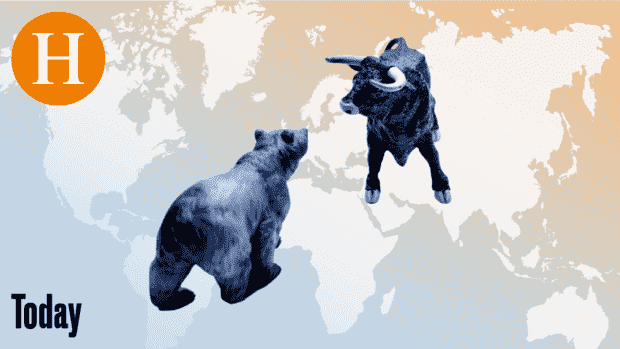Dusseldorf It is a dangerous and symbolic visit: the heads of government of Poland, the Czech Republic and Slovenia traveled by train to Kyiv on Tuesday to speak with Ukrainian President Volodymyr Zelenskiy on site. In the new episode of Handelsblatt Today, international Handelsblatt correspondent Torsten Riecke explains the background to the surprise visit and the significance of the journalist Marina Owsjannikova, who protested against the Ukraine war on Russian state television.
Also: “With every day, with every bomb, Russia is moving away from the circle of the world community that we form together,” said Chancellor Olaf Scholz (SPD) during his inaugural visit to Turkish President Recep Tayyip Erdogan on Monday. Both called for a ceasefire and strongly condemned Russia’s violent actions in Ukraine.
Turkey is presenting itself as a mediator in the Ukraine war. The NATO country maintains close ties with both Kyiv and Moscow. “The fact that Turkey was the first country to organize a really high-level meeting between Russia and Ukraine has created a reputation in large parts of the world,” says Handelsblatt Turkey correspondent Ozan Demircan.
Erdogan has proven that he can not only divide, but also mediate. That could help him – both at home and abroad. “I see a certain recalibration of powers in this,” comments Demircan.
Top jobs of the day
Find the best jobs now and
be notified by email.
While Erdogan can distinguish himself as a mediator between Russia and Ukraine and also deserves the recognition of US President Joe Biden for this, Scholz and his ministers are internationally criticized for their Ukraine policy. Above all, the reluctance to impose sanctions on Russia is criticized by many. Turkey correspondent Ozan Demircan talks about the new role models, the seemingly “new” Erdogan and the motives behind his change of heart.
MSCI Emerging Markets heavily dependent on China
Russia’s war of aggression also marks the beginning of a new world order. The consequences of the war can also be felt outside of Ukraine: The prices for raw materials have risen sharply worldwide. Emerging countries in particular are severely affected by the rising costs.
Jan Mallien is monetary policy correspondent at Handelsblatt and in the current episode he talks about the popular emerging market index MSCI Emerging Markets, which had already lost significant performance in Ukraine before the start of the war. “Many emerging markets have already borrowed heavily during the pandemic without being able to cope with higher debt that well,” says Mallien.
The index depends heavily on China: the wave of regulations in the tech sector, in the real estate sector and the lockdown in Shenzhen are factors that already had a negative impact before the Ukraine war. But what signals are needed for a change of direction? You can hear that in the current episode of the Handelsblatt Today podcast.
We have an exclusive subscription offer for you as a Handelsblatt Today listener. Interested? Then take a look here.
If you have any comments, questions, criticism or praise for this episode, please email us at: [email protected]
